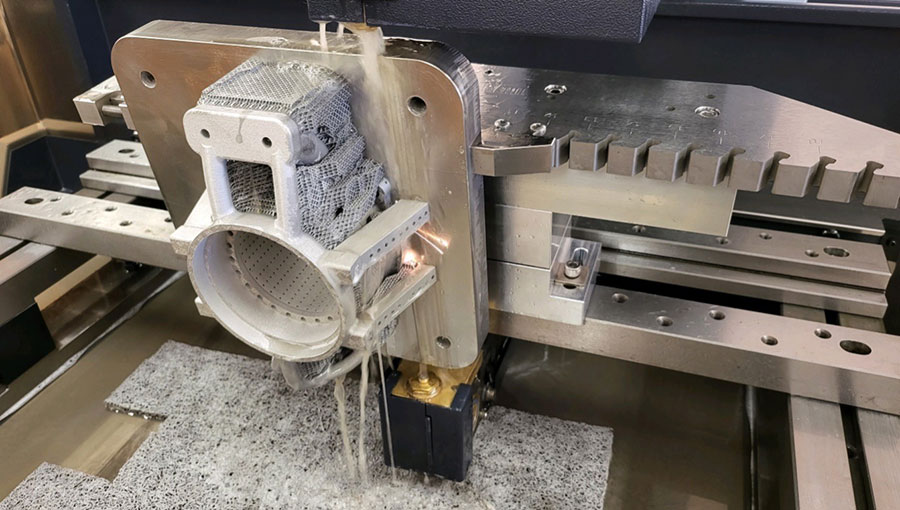Artificial intelligence (AI) subset machine learning (ML) has rapidly changed many aspects of our daily lives. It is hard to talk about ML without mentioning personalized recommendations on streaming platforms and sophisticated fraud detection systems. This article aims to describe how machine learning is changing life in many ways making tasks easier, improving productivity, and bringing new opportunities across various domains.
Understanding Machine Learning
To comprehend the impact of this technology, it is important to understand what machine learning means. Najam Ul Hassan Sheikh SEO Specialist at R2V advocates that “ ML involves algorithms and statistical models that enable computers to perform specific tasks without explicit instructions. Instead, these systems learn from data that they process recognizing patterns in it or predictions based on such data. The more information there is for a given system; the better are its forecasts and choices.”
Personalized Recommendations
1. Streaming Services: One of the most visible impacts of machine learning is in personalized recommendations on streaming platforms like Netflix, YouTube, and Spotify. These platforms analyze users’ viewing or listening habits to suggest content that aligns with their preferences. Through continuous learning from user interactions, these systems engage individuals by providing increasingly accurate recommendations thus improving overall user experience.
2. E-commerce: E-commerce platforms such as Amazon leverage ML to personalize shopping experiences. By analyzing browsing and purchase history, these systems suggest products that users are likely to be interested in. Not only does this enhance customer satisfaction but it also improves sales revenue as well as client loyalty.
Enhancing Communication
1. Language Translation: Machine learning has revolutionized language translation. Services like Google Translate use ML algorithms for real-time translations which have made communication between people who speak different languages much easier than ever before. These systems are continually improving, becoming more accurate and contextually aware over time.
2. Chatbots/Virtual Assistants: Virtual assistants like Siri, Alexa, and Google Assistant rely heavily on ML to understand and respond to user queries. These systems use natural language processing (NLP) to read or write languages that are spoken, thereby making communication more natural and efficient. Also, ML-powered chatbots are increasingly used by businesses for customer service purposes such as processing inquiries, resolving issues, and giving information.
Karina Newman Owner of ibuyers says “Devices like Alexa and Nest make home management easier and more efficient. Netflix and Amazon use it to suggest shows and products we will like. In healthcare, it helps doctors diagnose diseases and lets wearable devices monitor our health. While these technologies offer many benefits like convenience and accuracy, they also raise privacy concerns and are hard to use.”
Enhancing Healthcare
1. Diagnostic Tools: About diagnostics, machine learning is making great strides in healthcare. ML algorithms can assess medical images like X-rays and MRIs for any sign of abnormality, with high precision. These instruments help doctors to determine diseases early on, leading to improved patient outcomes.
2. Personalized Medicine: ML is also advancing personalized medicine. By analyzing genetic information and patient data, ML systems can predict the response of individuals to different treatments thereby enabling more customized and effective medical care. This method is advantageous in treating complex diseases such as cancer.
Improving Financial Services
1. Fraud Detection: In the financial industry, machine learning plays a major role in fraud detection. ML algorithms assess transactional data in real time to identify irregular patterns that may be indicative of fraudulent activities. They do this more effectively than traditional methods hence being able to protect consumers and financial institutions from fraud.
2. Credit Scoring: Machine learning is transforming credit scoring significantly. Traditional credit scoring models consider only a few factors but ML systems can analyze many different kinds of data points thus giving a better picture of someone’s creditworthiness. This ensures that people’s credits are evaluated fairly and accurately.
Reinventing Transportation
1. Autonomous Vehicles: One of the most fascinating applications of machine learning is autonomous vehicles. Tesla for instance uses ML techniques while developing self-driving cars that can navigate complex environments, recognize objects they come across in real time, and make a decision concerning them. While fully autonomous vehicles have not become mainstream yet, technological progress in this area has been fast-paced with potentially revolutionary implications for transportation.
2. Kuu Kusi-Yeboah owner of Skyward Wings asserts that “Traffic Management: Machine learning has also been used for optimizing traffic management within cities.ML systems enable the optimization of flow by predicting congestion based on traffic patterns. This reduces travel times while minimizing emissions. These advances contribute towards an efficient urban transportation system that promotes sustainability.”
Optimizing Homes and Workplaces
1. Smart Homes: Through integration powered by machine learning technology homes are now becoming smarter and more efficient. Smart thermostats, lighting systems, and security cameras learn from users’ patterns to optimize energy consumption and enhance security. They can adjust as need be based on the conditions and preferences offered thus providing a more secure and comfortable living environment.
2. Workplace Productivity: In the workplace, productivity is being enhanced by ML tools that automate repetitive tasks while others are offering data-driven insights. For example, ML algorithms can be used to study large data sets to identify trends, relationships, or patterns that may be of help to business decision-makers. In addition, automated scheduling and email sorting systems save time and lessen administrative burden.
Education Revolutionizing
Personalized Learning Machine learning is transforming education through personalized learning. Through the use of machine learning algorithms, performance data for learners can be analyzed to determine their strengths and weaknesses thus enabling tutors to customize instruction to specific student requirements. Students’ engagement with teachers in this way improves and also enhances the level of understanding.
Conclusion
No one can dispute that machine learning is changing our lives every day in ways that we cannot comprehend. In this case, a lot of aspects have been touched starting from personalization as well as improved communication to issues affecting healthcare, finance, transportation, home automation environmental sustainability and finally education where they enhance efficiency, productivity including overall quality of life among many others. As the technology continues evolving it will likely have an even greater impact resulting into new opportunities and changes in lifestyle and work. The ability by individuals as well as organizations to adapt these modifications will determine how successful they will become given the growing digitization associated with today’s world.



